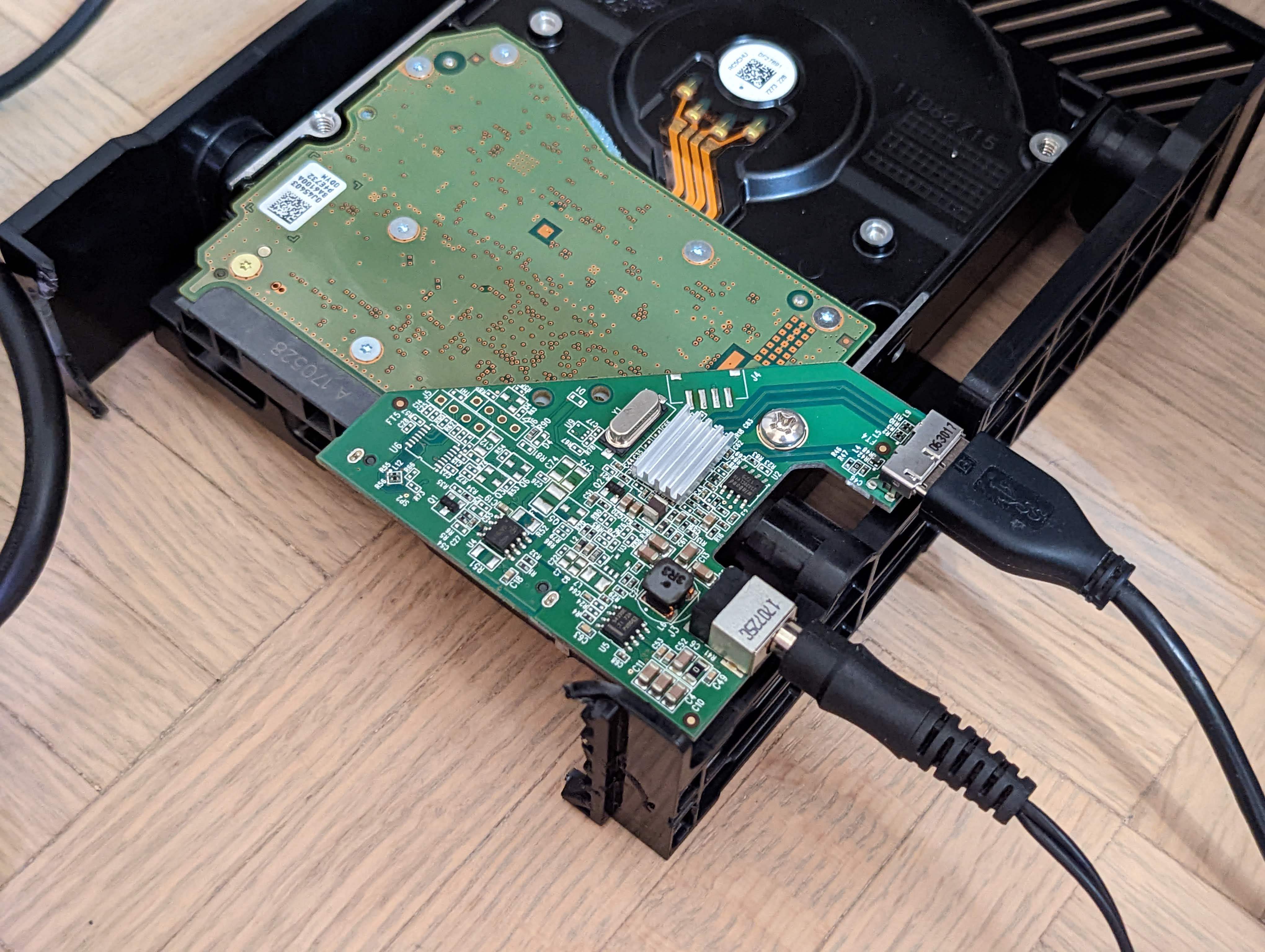Hello, I currently have a home server mainly for media, in which I have an SSD for the system and 2 6TB hard drives set up in raid 1 using mdadm, its the most I can fit in the case. I have been getting interested in ZFS and wanting to expand my storage since it’s getting pretty full. I have 2 12TB external hard drives. My question is can I create a pool (I think that’s what they are called), using all 4 of these drives in a raidz configuration, or is this a bad idea?
(6TB+6TB) + 12TB + 12TB, should give me 24TB, and should work even if one of the 6TB or 12TB fails if I understand this correctly.
How would one go about doing this? Would you mdadm the 2 6TB ones into a raid 0 and then create a pool over that?
I am also just dipping my toes now into Nixos so having a resource that would cover that might be useful since the home server is currently running Debian. This server will be left at my parents house and would like it to have minimal onsite support needed. Parents just need to be able to turn screen on and use the browser.
Thank you
The simplest way to do exactly what you want is to use LVM to create a linear volume (equivalent to JBOD) from the two 6TB disks. Then create a zpool with a single RAIDz1 vdev with that along with the other 2 12TB disks. You could use mdraid to do a RAID0 as you suggested too. The result would be similar. In fact that could be easier for you if you already know how to use mdraid and you don’t LVM.
You could also do it all with ZFS albeit with more lost space. You could create a zpool with 2 vdevs. One with a 6TB mirror comprised of the 2 6TB drives. The other a 12TB mirror. The redundancy in ZFS is at the vdev level. A zpool contains one or more vdevs. It combines their space like a JBOD. You can mix and match the size and type of the vdevs. You can have mirrors with RAIDz, just mirrors, just RAIDz, etc. My suggestion for having two mirrors, 6TB and 12TB results in 18TB usable space. This is straightforward, easy to manage and easy to expand. You just add another vdev to the pool with whatever topology you like. If you want to maximize the space with what you got, you can do your idea instead. It’s got a bit more setup and a bit less redundancy but it’ll work fine.
EDIT: Ensure your external drives work reliably under load for extended periods! Either load test them with something and/or watch for errors while transferring data to the new zpool. If you see an error, check dmesg for anything related to a USB drive. If you encounter such a problem it might be a controller bug, controller overheating or a bad cable. Controller refers to the enclosure SATA-to-USB bridge. I have 5x WD Elements, one WD MyBook and 2x NexStat 3.1. They’re all using ASMedia. The WD Elements are prone to overheating if there’s no appropriate ventilation. I’ve had to adhere tiny heatsinks to two of them in order to resolve overheating as they operate at higher ambient temperature. Crucially all of this overheating has occurred under load. Without loading them, it’s all looks fine and dandy. ZFS did not lose me any data when any of this happened and as I addressed it.
That is a good point about stress testing them, if memory serves me well I believe one of the 12TB would disconnect a while back maybe 2 or so years ago when I was using windows and doing large backups. I think the consensus around seems to just mirror the 6TB and mirror the 12TB drives separate, it’s probably what I will end up doing since in the end I am tripling the amount of storage and really allowing me to lose two drives albeit two different drives before data loss. Feel I may be getting a bit greedy with what I have and should just be happy with what I am getting with that. Looking at getting an upgrade in about a year or two either way.

Apparently I’ve heatsinked the MyBook as well. This is what that looks like without the cover. The heatsink is from a Raspberry Pi kit. If I were you, knowing what I know, I’d just slap heatsinks on the 12T disks preventatively instead of testing them.


